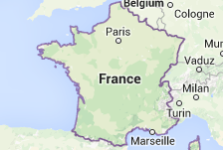
Left-wing Syriza party leader Alexis Tsipras, left, waves to his supporters as leader of the right-wing Independent Greeks party Panos Kammenos makes the victory sign after his general election victory, at Syriza’s party’s main electoral center in Athens, Sunday, Sept. 20, 2015. Tsipras said he would renew his partnership with Kammenos in coalition government.Lefteris Pitarakis AP Photo
ATHENS, GREECE – Alexis Tsipras is set to receive the formal mandate later Monday to form a Greek government for the second time, after his left-wing Syriza party unexpectedly won a decisive victory in early national elections.
Syriza’s victory in Sunday’s election marks a personal triumph for Tsipras, who served as prime minister between January and August — a tumultuous period that saw Greece’s future in the 19-country eurozone come under real threat and strict banking controls imposed.
At 41, Tsipras dominates Greek politics despite a major policy U-turn that saw him go against the anti-austerity platform that swept him to power in elections in January in return for a multibillion bailout that keeps Greece in the eurozone.
Tsipras, who has seen off both the main, center-right opposition and his own party rebels, has said he will renew his pro-European coalition with the small, right-wing populist Independent Greeks (ANEL) party, which beat opinion polls to clear the three percent threshold required for representation in parliament. The new government will have a small majority of just five seats.
With more than 99.7 percent of Sunday’s votes counted, Tsipras’ Syriza had 35.5 percent, while the center-right New Democracy trailed with 28.1 percent. But in a sign of widespread discontent, more than four in 10 Greeks didn’t vote and the Nazi-inspired Golden Dawn remained the country’s third-strongest party with 7 percent.
Congratulating Tsipras Monday, European Union President Donald Tusk said he hoped the election results “will now provide for the political stability necessary to face all the challenges at hand.”
As well as noting Greece’s own financial difficulties, Tusk highlighted the immigration crisis that Europe is struggling to deal with. Greece has registered 260,000 refugees and economic migrants this year alone.
And the German government “will also work closely and in partnership with the new Greek government,” spokesman Steffen Seibert told reporters in Berlin.
“This doesn’t just concern overcoming the debt crisis together, it also concerns the challenges posed by the refugee situation,” he said.
Tsipras’ government policy is likely to be very different to his previous one after his decision to back Greece’s third international bailout in July. By doing so, Tsipras effectively abandoned his previous pledge to bring the austerity that Greece has endured for years to an end.
In return for the 86 billion-euro ($97 billion) bailout from its partners in the eurozone, his government will have to impose further austerity as well as undertake a series of economic reforms. Some of those demands were already legislated before Tsipras’ resignation in August that triggered the early vote.
Through the campaign, Tsipras said any government led by him would honor the bailout but would seek improvements.
“We will soften certain elements of the agreement, without breaking our (bailout) commitments,” Dimitris Mardas, deputy finance minister in Tsipras’ first government, said Monday.
European creditors are expected to review Greece’s reforms next month, while the government will also have to draft the 2016 state budget. It must also oversee a critical bank recapitalization program, without which depositors with over 100,000 euros ($113,000) in their accounts would likely be forced to contribute.
Greek investors reacted guardedly to the election result, and the main stock market in Athens was nearly 1 percent down in afternoon trading.
“After years of almost unprecedented crisis, the vast majority of Greeks has once again endorsed parties that are promising to keep the country in the euro even if that implies thorough and painful reforms,” said Berenberg Bank analyst Holger Schmieding.
Syriza has, according to Schmieding, a clear mandate to do whatever it takes to keep Greece in the euro — which it looked set to crash out of before the summer bailout deal.
Still, many Greeks voiced apprehension over the impending cutbacks, which follow a six- year crisis that’s seen the Greek economy shrink a quarter and unemployment swell to over 25 percent.
“I am happy that Tsipras was elected, but he should work, “said 54-year-old mechanic Kostas Tabaris. “He must (carry out) reforms, fix the crisis, help the poor, give presents, money to everyone.”
Civil servant Nikos Georgopoulos, 40, said he found the result disappointing.
“I am pessimistic, because we already knew which line of politics will be followed,” he said. “The politics of the third (bailout). So we know that there is nothing good for the Greek people to wait for.”
Just seven months into his term, Tsipras lost his majority in parliament after far-left rebels in his party opposed the tough conditions demanded by eurozone countries for the new rescue package. But rebels, who formed a breakaway party pledging to take Greece out of the eurozone, failed to get elected to parliament, falling below the 3 percent threshold.
Teneo Intelligence analyst Wolfgango Piccoli said the overall result shows that Tsipras is now “the only player in town.”
“His supreme political skill is only matched by the incompetence of his political adversaries,” Piccoli said.
However, he warned that the coalition government will once again be “composed of politicians with limited capacity and competence, as demonstrated before” and that implementing the bailout demands “will remain challenging.”
A total of eight parties won parliamentary seats, including the once-dominant Socialist Pasok, centrist Potami, the Greek Communist Party and the Centrist Union — a fringe party led by Vassilis Leventis, a political pundit famous for his on-screen outbursts of anger during appearances on his long-running late-night TV show.
Golden Dawn, whose leadership is on trial for allegedly running a violent criminal group, dropped marginally in its number of ballots, but had a slightly higher percentage of the overall vote due to the low turnout.
The vote was held as Greece struggles to cope with Europe’s refugee crisis, and Golden Dawn performed strongly on the eastern island of Kos — which has seen massive refugee arrivals from Turkey — almost doubling its percentage there to 10 percent.





